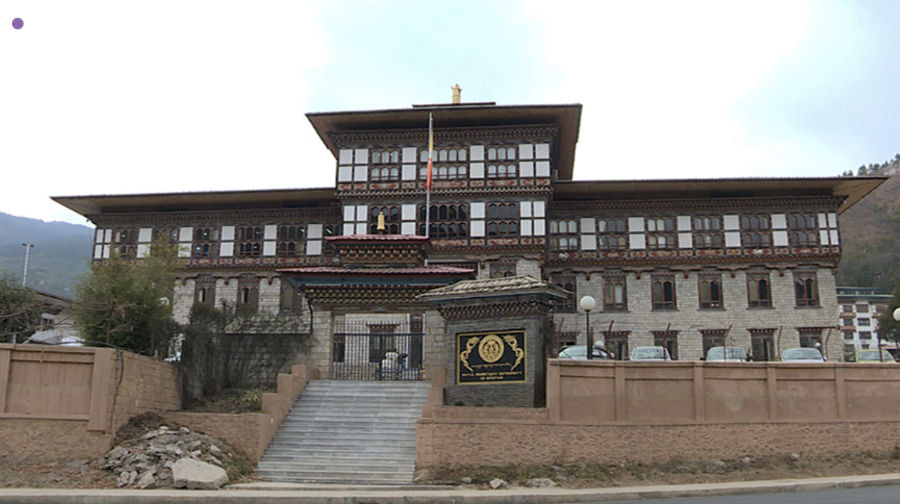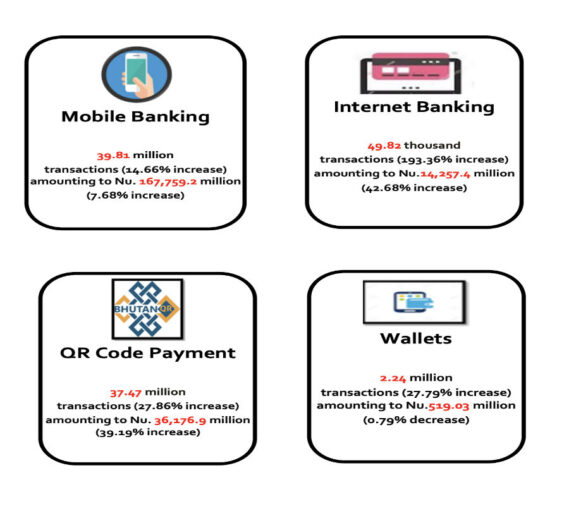 From parking fees to bigger payments, more people in the country are now paying digitally. To push this shift and reduce the use of cash and move closer to a ‘cash-lite’ economy, the Royal Monetary Authority is planning to introduce an additional charge on cash transactions starting next year. However, there is no need to worry, cash isn’t going away anytime soon. The RMA says the shift will be gradual and carefully managed.
From parking fees to bigger payments, more people in the country are now paying digitally. To push this shift and reduce the use of cash and move closer to a ‘cash-lite’ economy, the Royal Monetary Authority is planning to introduce an additional charge on cash transactions starting next year. However, there is no need to worry, cash isn’t going away anytime soon. The RMA says the shift will be gradual and carefully managed.
The RMA said digital payments such as mobile banking apps, mobile wallets, and iUPI Global QR codes for vehicle fuelling and other daily transactions have made life easier while reducing risks such as theft, loss, or counterfeit notes.
To promote digital payment, the RMA has planned a two-step approach. In the first phase, the authority will focus on promoting the use of digital payments. Depending on how it goes, the second phase may consider introducing a surcharge on cash transactions.
“I think it is important to clarify that the surcharge will not apply to retail transactions. For example, if you go to town and buy something with cash, there is no surcharge on the cash. But if you come back to the bank to subsequently deposit or withdraw your cash, there might be a surcharge. And that they will also have a threshold. So, that threshold should take into consideration what might be a reasonable cash-based transaction,” said Yangchen Tshogyel, Deputy Governor.
Digital transactions in Bhutan continued to grow between April and June 2025 compared to the same period last year.
Mobile banking recorded nearly 40 million transactions, an almost 15 per cent increase. Internet banking recorded nearly 50,000 transactions, up by 193 per cent, while QR code payments rose to over 37 million transactions, up by 27.86 per cent. Digital wallets also grew by over 27 per cent, handling more than two million transactions.

The RMA clarified that moving toward a cash-lite economy does not mean cash will be eliminated.
“No country has done it. We don’t think it’s possible. And there are cultural reasons for holding on to cash as well. So, we anticipate actually the cash to still be around, and in fact, on the cash front, also what we will do is we will continue to work on enhancing the security features in cash so that it becomes much more difficult to make counterfeit notes,” added Yangchen Tshogyel, Deputy Governor.
While mobile banking, QR codes, and mobile wallets are already widely available, the authority said banks are now adding more Point of Sale machines, especially for tourists. As of today, there are over 900 Point of Sale machines across Bhutan.
The RMA and the finance ministry aim to make Bhutan’s move toward a cash-lite economy seamless, inclusive, and beneficial for all, paving the way for a safer, more convenient, and modern payment system.
Kinzang Lhadon
Edited by Sonam Pem








